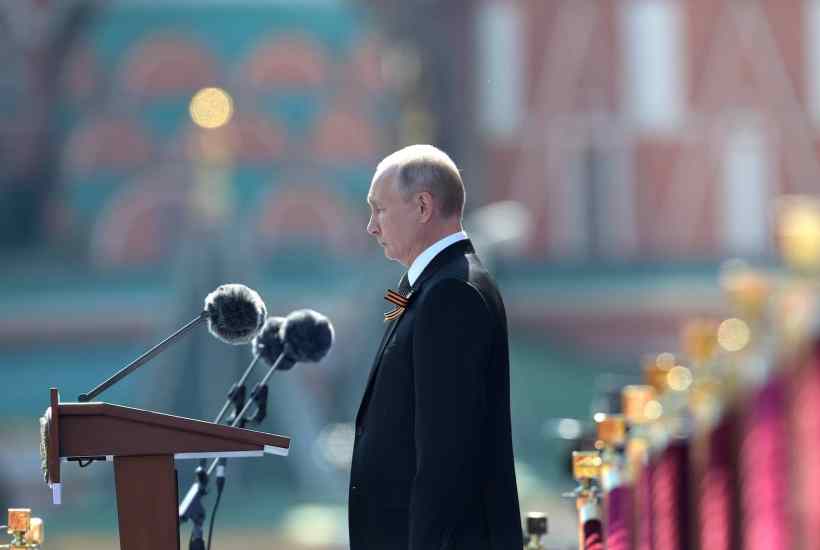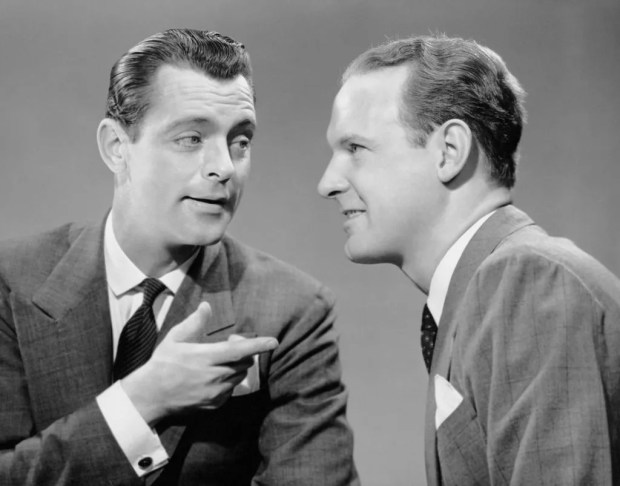‘It’s like being part of a cult,’ explains one student of Russia’s elite diplomatic academy. ‘They expect us to learn about diplomacy and the international order like nothing has changed, but everything has.’ Since it was founded by Joseph Stalin in 1944, the Moscow State Institute of International Relations has been a training ground for Russian ambassadors, Kremlin advisors and KGB spies. Now, though, discontent is stirring among the students.
In the weeks following the invasion of Ukraine, Russia passed a series of laws that made discrediting the armed forces an offence, punishable with fines and even jail time. While these future civil servants were always expected to ingest an official version of history and current affairs, the crackdown has made critical perspectives of government policy entirely unacceptable in the classroom.
‘They make it clear that nothing good will happen to you if you disagree,’ one young student warns. ‘We had a session where we discussed Ukraine and sanctions. My friend and I couldn’t say a word because everyone else was in favour of the war, talking about how to spoil western plans. They say we should stop supplying gas to Europe, then we’ll see how their opinion changes.’ She once dreamed of becoming an ambassador but has since decided to leave the country as soon as she graduates. ‘I can’t work for these crazy people’.
But many do naturally sympathise with their country’s position. Some even went so far as to buy ‘Z’ branded t-shirts and hats, wearing them around campus, to show their support for the invasion. ‘By virtue of my education it is clear to me what exactly Nato wants from Ukraine, and why our country could not allow such a turn of events,’ one student told me.
Few of Putin’s inner circle seem to have known he was planning an invasion until it was announced in late February. Foreign minister Sergei Lavrov and diplomatic spokeswoman Maria Zakharova, both regular speakers at MGIMO (as the university is more commonly known), had spent months insisting that no such action would be taken. Lavrov seemed genuinely frustrated during a meeting with his British counterpart, Liz Truss, in which she repeatedly warned against an assault. For many Russians, it was proof that the West was deaf to their country’s concerns about Nato expansion and intent on lecturing them regardless.
Now though, the establishment has been forced to catch up with reality, and Moscow’s top diplomat has been sent out to contort himself over conflict. ‘We have not invaded Ukraine,’ Lavrov claimed in March, weeks after the tanks had started rolling. Even if they don’t find that argument particularly convincing, current and aspiring officials either have to get behind it or risk severe consequences for speaking out.
So far, only one has. Boris Bondarev, an envoy with Russia’s mission to the UN in Geneva, made global headlines when he resigned in protest last month. ‘Today, the Ministry of Foreign Affairs is not about diplomacy. It is all about warmongering, lies and hatred,’ he wrote, arguing Lavrov himself has gone from respected elder statesman to conspiracy-loving crank virtually overnight.
Even those who want to stick with the foreign service are finding it more difficult. With dozens of envoys sent home in tit-for-tat expulsions from EU nations, slashing the number of available international postings, those who have been studying European languages for years are more likely to be writing reports in a back office in Moscow than enjoying a coveted role in Rome or Paris.
Likewise, there is seemingly little space for diplomacy in Russia’s current playbook. In Ukraine, as the fighting edges towards a grinding stalemate, the chances of a negotiated settlement look increasingly slim. What deal, Kyiv’s politicians ask, could ever be done with a country that can’t be trusted to honour its commitments?
Many of MGIMO’s lecturers are veterans of the Soviet diplomatic service, seemingly unconcerned about the prospect of the country once again being cut off from much of the world. For their students, though, a generation that grew up in a period of relative liberal openness, the change is less likely to be welcomed. Many are used to holidaying abroad and more western lifestyles. With Instagram banned, designer shops pulling out and restricted access to European visas, they face the consequences of Putin’s war far more than their teachers.
That generational divide has also caused some explosive disagreements. One class at the diplomatic academy apparently descended into furore after a faculty member referred to Ukrainians as ‘hohols’, a slur popularised since the start of the war. She is said to have denied it was racist when confronted by students, claiming her partner is of Ukrainian descent. The row, however, is a testament to the fact that even those planning careers at the heart of the Russian state aren’t entirely prepared to accept the full extent of its vitriol.
Outside of the country, observers have pinned their hopes on the next generation of Moscow’s leaders. However, as one disillusioned diplomatic trainee puts it: ‘Nobody expects our relationships with the West to get better in our lifetimes. If you want a job in foreign relations, you should probably start learning Chinese.’
Got something to add? Join the discussion and comment below.
Get 10 issues for just $10
Subscribe to The Spectator Australia today for the next 10 magazine issues, plus full online access, for just $10.




















Comments
Don't miss out
Join the conversation with other Spectator Australia readers. Subscribe to leave a comment.
SUBSCRIBEAlready a subscriber? Log in